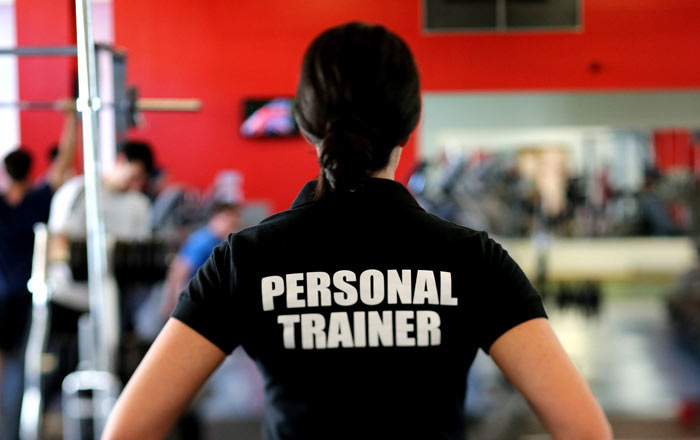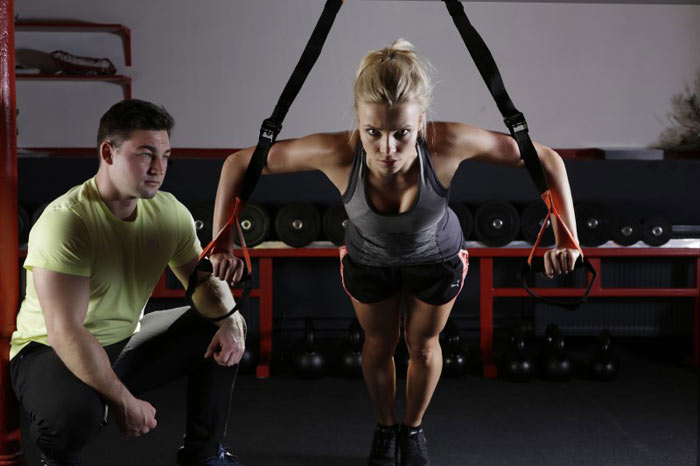So you’ve arrived at the point when your physical skills are no longer enough, and you need badly an expert who will see you through to greater sports achievements. A personal trainer is one who keeps you responsible and accountable at the same time ensuring that you move along more pointedly, consistently, and involving all your muscles even those of whose existence you were not aware before.

That’s all very nice, but you would want to make sure you are really gaining and not just giving your money away without proper practical result. But how can you make the right decision, and what should you go by when selecting the trainer who you can follow without hesitation? Well, there are some guidelines.
Determine your goals
Before you approach a trainer, think deeply about what your goals are, where you want to find yourself with their help. It will be better going if you know what you want and can explain it to the trainer. Make it a sports goal, not just about losing weight. How many pushups and pullups you want to at a time, how fast you want to run. If you are vague, your workouts may also become purposeless.
Ask about their qualification
This can be a determining factor. As you get along you need an experienced professional who will help you to develop without incurring traumas and injuries. That comes from not knowing techniques in detail. Make sure you inspect your trainer’s credentials, not only references. You must have one you can trust completely.
Get an experienced pro

A professional with a lot of experience has seen how people react to his (her) techniques and has adjusted them accordingly. Such a trainer can give you the best cues that have been tested in practice. One who has been certified but recently can know a lot of theory, yet be unsure about applying their knowledge. Do you want to be a part of their experimenting?
The exact kind of experience is important also. A gym newbie and an old hand athlete wanting specific development need different approaches, and what is good for one is worthless for another. You require a trainer who knows your needs. Take into account fitness level, a field of interest, health, age, other details that can be pertinent to what you are about to do.
Fees and schedule
A really good trainer is a great investment, but your budget is on your head, and it’s worth your while to rake up information about how much trainers charge in your area and how much you can afford to fork out for your workouts.
Supposing you found you cannot pay for a personal trainer, what can you do about it? You can consider a few possibilities. First, you can go for semi-private training with a small group, these usually cost less. Second, inquire if you can get discounts for bulk payment. Third, you can get on with your gym exercising and hire a trainer only as an additional measure: you can ask to meet from time to time for them to create a training program for you and check your progress periodically while you will be working out on your own.
Make a point of learning their schedule policy – when they are available for sessions, how far ahead you can book and cancel, how you make up for canceled sessions, so you won’t have to argue and get indignant afterward. Let your training run smoothly.
What are their preventive measures and what are they going to do in case of injury?
It is especially important for those with chronic pains and aches or those unfortunates who suffer from recurring injuries. Arranging for workouts that won’t lead up to a flare-up above everything else is essential. Your trainer should know all about your old injuries and painful parts so they can make up a program that goes easy on these parts of your body. In case of recent health problems, expect them to send you to see a doctor who will tell you what is unadvisable to do.
Coaching style and personality
There sure must be good compatibility with your personal trainer! So, look carefully into their teaching style and personal characteristics. Beginning with your own style of learning. Do you want a lot of theory to back up your exercising? Do you need someone patient of whom you expect to show you every motion time and time again? Do you like them to stand by and comment on your every move?
Their personality is also one of the prime movers in the success of your training course. Who do you like more: a cheerful person who will keep praising you for your achievements, or a strict unbending one who will be pressing you into further exploits without stopping to remark on your progress? Here is a range of types within which you need to find a point of maximum comfort. One study found that gym successes are more impressive with ceaseless social support provided by trainers. Yet there are trainees who dislike overdoses of motivation and would rather focus on theory and precision. They don’t like to be watched upon.
Ask for opinions

You don’t need to hesitate to ask the gym’s manager what opinion other clients hold about one personal trainer or another or inquire among a particular trainer’s clients for their private views on their training ways.
There’s absolutely nothing to stop you from engaging a potential trainer in a conversation about his or her methods of training and ideas about how it is better to develop human body – in conjunction with their trainees’ opinions it may give you a fairly good picture of what you might be in for. Find out how well they can explain, whether they have any personal quirks, how punctual they are and expect their clients to be.
Once you are seriously into strengthening your health and achieving a great level of fitness, you don’t want to make a mistake in choosing your trainer. Mind that you approach the agreement with care and patience so you know well who you sign up with to make it a totally pleasurable and beneficial experience.











